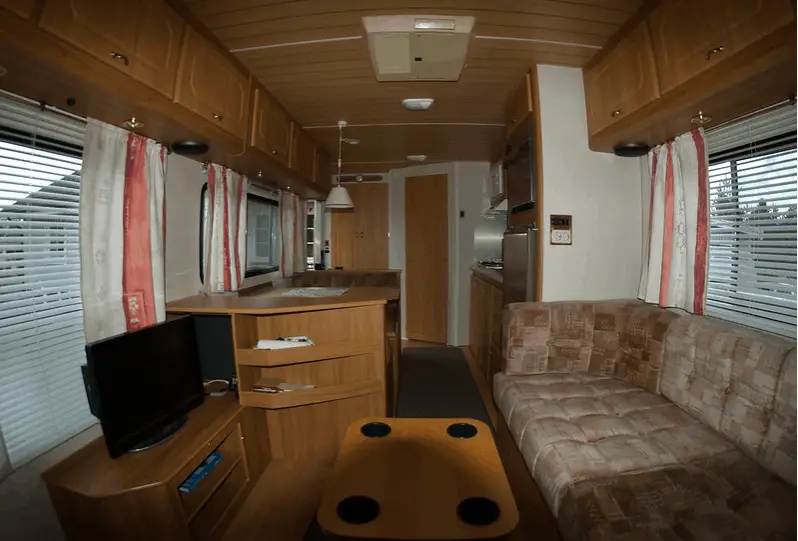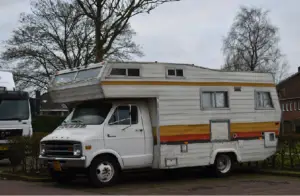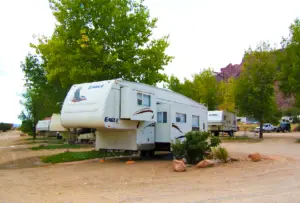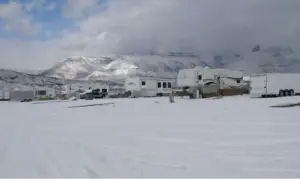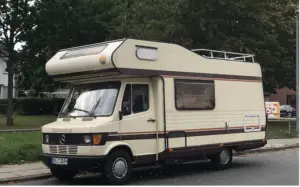RVs and camper vans naturally develop musty smells over time and while regular airing out can help prevent musty, stale odors from accumulating indoors, sometimes you get other smells that are harder to get rid of.
Read on to know about the most common RV smells that you’ll encounter and how to deal with them.
Here are 9 Common RV Smells, their reasons and how to deal with them.
Rotten egg smells
The smell of rotten egg may not be something you’ll encounter on a daily basis but you may notice it right away when it starts wafting because it’s unusual.
The most common cause for that rotten egg smell is a dirty water heater.
Bacteria in the water can react to heat when you fire the heater up, which produces the smell. The simple fix is to clean out the water heater and to replace the heating rod.
Another cause for rotten egg smells is an overcharged lead-acid battery.
When overcharged these batteries tend to produce an acid gas that smells like rotten eggs. You will need to get professional help for this and probably get your batteries replaced.
Also, check your propane hoses as a last precaution. Leaking propane gas can have a rotten egg smell. If you suspect a leak call a professional right away.
Sewage odor
If your RV starts smelling like you parked it next to the sewer, it could probably be because you have backed up sewer water that needs dumping.
Check your gray and black water catchments to see if they have any leaks or if they need to be changed. Your RV has gray and black water holding tanks, the former for water that has been used for showers and dishwashing, and the latter for holding tanks for waste.
Your gray and black water tanks may just need a good flush. Use a hose with good water pressure to hose down the inside of your tanks. Allow the water to fully drain out. You can also use tank treatment solutions to control the growth of bad bacteria in your water tank.
This is a good solution if your valves and seals are working properly but you are still getting the smell of sewage in and around your cabin.
A leaky or broken pipe that connects to your black or grey water tanks could also be causing the sewer smells. Broken or blocked drains are also another cause especially if your RV sinks use a one-way vent or vent pipes that run upward to the roof.
When these pipes get blocked, you can get these funky smells. Check the pipes for leaks, broken parts, or blockage. To prevent these odors, always perform routine flushing of your grey and black tanks and use a sewage treatment solution to minimize tank odors.
Perform routine pipe cleanings to ensure that no solids are left to decompose in your pipes. You can also hire a professional to repair pipe leaks when needed.
Toilet Smells
Another reason why your camper may smell bad could be your sewer lines and drains are clogged.
While it is not advisable to flush certain things like paper towels and feminine products, this can still happen and pipes can get clogged. The material stuck inside will start to decompose.
Uncleaned toilets such as waste and mildew that remain on the underside of the drop seat can begin to decompose and produce strong toilet odors.
A broken wax ring, the sealing ring that connects the toilet tanks to the black water tanks can break down and this allows toilet odors to leak out.
If your camper has a roof vent for your bathroom sink, the pipe leading up to the roof could be cracked and this is where your drain odor is passing through.
The solution is to repair broken seals or leaky pipes, replace broken valves, and keep your toilet clean.
Mildew
Mildew smells are often caused by condensation or molds present on the surfaces of your camper.
Look for damp piles of clothing, leaky water tubes, or signs of mold. Hire a plumber for leaky water pipes or a mold specialist remover to deal with mold issues.
To prevent mold problems always ensure cross ventilation and open as many roof lights and windows especially on a sunny day to allow the light to disinfect the camper interiors.
If moldy smells persist, you may have mold growing inside the camper frame. A thorough check by a mold specialist will detect this problem.
Check out these ways to get rid of mold in your camper trailer or motorhome.
Fishy Odors
Surprisingly enough, a fishy smell in your RV doesn’t mean you have fish rotting somewhere in there, although this could also be a possibility.
However, the most common cause for a fishy smell in your RV is a poor electrical connection or overloaded electrical wires that are cooking the insulation.
Check for overhead fuses and melted insulation or have a professional service crew do the proper tests to check for problems. Just to be sure, you can also check the fridge for leftover food while the fridge was turned off. Rotting food and food waste can decompose and produce a fishy smell.
Musty Smell
Campers are bound to develop musty smells the more you use them especially if you travel to humid and damp places.
RVs have thin walls and they are parked outside, where they are exposed to the elements such as rain and heat.
Over time, moisture and humidity can creep indoors and settle in all corners of your RV, especially in areas that are dark and damp.
A cheap but effective way to eliminate this odor is to open a tub of activated charcoal. The activated charcoal attracts moisture from the air to keep humidity levels down.
A typical RV can use one tub at a time and this can last for up to 8 weeks before you need to open a fresh tub.
If your RV is parked somewhere that is super humid for most parts of the year, you can open two tubs at a time. Moisture absorbers are available in most dollar stores.
Another reason for a musty smell is an external leak where you have water leaking into the construction of the fabric of your camper.
These leaks are often small and the musty smell can become noticeable over the course of a few years. Check for any water leaks if the musty smell becomes more intense as time goes on. Here are some home made solutions to get rid of such smells.
Ammonia smell
If you start to smell ammonia in your camper, check your fridge. Most RV fridges use ammonia-based coolants and a leak could be the reason why your RV is starting to stink with ammonia.
If the ammonia smell starts to get stronger as the day gets warmer, this could be the most likely culprit since your fridge will naturally work harder in warmer temperatures.
Check for a powdery yellow deposit along the piping at the rear end of your fridge. If you see this yellow powder you most likely have an ammonia leak. Also, check for a leak in the coolant tubing and repair any leaks that are present since exposed coolant tubing is a fire hazard.
You can also check the toilet for urine that has remained unfinished. Stale urine breaks down into ammonia and this could be causing the smell.
Gasoline smell
Gasoline smells in an RV are nothing to laugh about. This could be a sign of a fuel leak which means you need to look for the leak or take the RV to the shop to have a professional make a more thorough diagnosis.
You can also check the evaporative emission hose or canister. A loose-fitting or defective hose could be causing gas to leak.
Also, look at the fuel pump. A defective pump may be pushing gas upward while the engine is running, which could be very dangerous.
If this is the problem you may smell gas inside the cabin while the engine is running. If the smell persists even if the engine is off the problem could be a leak in fuel lines or the fuel rail.
Plastic smells
Burning plastic smells in RV are often caused by overheating insulation or electrical wiring.
Check all wiring and electrical connections both inside and out of your camper. Check the breaker box for overheated wiring as well. Plastic burning smells can be caused by poor wire connection which can cause the wires to overheat, melting the plastic insulation.
For a more thorough inspection and repairs it is best to bring your camper to your service center since electrical problems may require more sophisticated fixes.
Unidentified smells
If you smell generally iffy or unidentified smells, these could be caused by so many factors, from unwashed piles of laundry, stinky shoes or dead insects, and even decomposing small animals.
Check wirings for dead small animals, for one thing. Also, ensure that you air out the interiors and vacuum on a regular basis.
If you have done all checks and weird smells still persist in your camper interiors, it is best to go to your service center for a thorough check. Your camper technician can perform a thorough check and do the proper tests to determine the cause of the smell and recommend the proper solutions.

